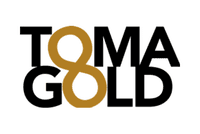Gold Price Slumps, but Some Gold Companies Rising Above
Gold has seen some lackluster performance lately. However, looking at the year-to-date performance of several gold companies, it’s clear there have still been some gains this year.
As Dundee Capital Markets’ Martin Murenbeeld noted at last week’s Denver Gold Show, gold is being hammered down by five key factors: the Federal Reserve tightening policy; the US dollar remaining strong; the world economy being sluggish; equity markets continuing to pull investment interest away from gold; and lastly, bearish technicals.
That’s not to say the yellow metal has no points in its favor. Indeed, Murenbeeld also highlighted several bullish points that could support gold for the rest of the year and into 2015. Dundee’s chief economist pointed at ETF supplies, which are significantly lower; expanded demand from Asia; central banks carrying on with their gold buying; and ongoing monetary reflation brought on by the global debt crisis.
Gold’s bullish future is little disconcerting, as it lies in the shaky hands of the global economy. Nonetheless, that’s nothing new for gold investors. That being said, when looking at gold mining stocks, where does an investor put their money?
Dividend-paying companies
When looking at options for investing in mining stocks, it’s good to keep a few factors in mind. The Motley Fool suggests that in times of uncertainty, investors interested in gold mining stocks should try their hand at dividend-yielding companies like Goldcorp (TSX:G,NYSE:GG) and Yamana Gold (TSX:YRI,NYSE:AUY); that’s because even when gold prices are low, investors are still making a little back.
The publication looks at Vancouver-based Goldcorp, which pays a monthly dividend that currently yields 2.4 percent at a dividend rate of $0.60. The article notes that the company has paid a dividend to shareholders each month since 2003. When gold prices are higher, the company increases its dividend. On the flip side, when gold prices are lower, the company hasn’t yet cut dividends.
With the Red Lake project in Ontario, the company is expecting to finish the year on a strong note.
Meanwhile, Yamana Gold has been in the news a fair bit recently, which is understandable given that the company teamed up with Agnico-Eagle Mines (TSX:AEM) earlier this year, placing the winning bid for Osisko Mining’s Canadian Malartic gold mine in Ontario. Yamana pays a quarterly dividend that yields 2.13 percent, with a dividend rate of $0.15.
Cutting down on costs
Another way that companies have been able to provide value for their shareholders is through reigning in their costs. While Reuters notes that deep cost cutting may only be a short-term cost savings measure, RBC Capital Markets analyst Dan Rollins noted at the Denver Gold Show that in some cases this strategy has been able to drive shareholder value in this dull market.
At the show, Rollins highlighted several companies that have cut costs and have managed to stand out from their peers. Included in Rollins’ list were Agnico-Eagle, Eldorado Gold (TSX:ELD), Goldcorp, New Gold (TSX:NGD,NYSE:NGD), B2Gold (TSX:BTO), Primero Mining (TSX:P,NYSE:PPP) and Klondex Gold Mines (TSX:KDX).
Looking at the performance of the seven companies listed by Rollins, year-to-date (YTD) figures show some winners so far in 2014.
Leading the charge on performance for the year is Eldorado Gold, which has seen a 24.05-percent jump in YTD share price. The company prides itself on being one of Canada’s lowest-cost gold producers. In its Q2 results, the company noted that “[r]eflecting the strong results year-to-date and our outlook for the balance of 2014, we are confidently revising our guidance for the year to production of 790,000 ounces of gold with average cash costs for commercial production of $495 per ounce and all-in sustaining cash costs of $850 per ounce.”
Also showing some decent gains so far this year is Primero Mining, whose YTD performance showed a 22.44-percent increase from January. Primero posted record gold production in the second quarter due to the San Dimas mill operating close to its new capacity of 2,500 tonnes per day. The company reported that it had incurred a combined total cash costs per gold equivalent ounce of $672 for Q2 2014, compared to$551 for Q2 2013. For by-products, total cash costs per gold ounce were $508 for Q2 2014, compared to$167 for Q2 2013. Meanwhile, all-in sustaining costs per ounce were $1,228 for Q2 2014, compared to $659 in Q2 2013.
Coming in with just under 20 percent YTD performance is Agnico-Eagle, which has shown an 18.37-percent increase in share price since the start of the year. With a strategy that consists of increasing net free cash flow through higher production, controlling operating costs and disciplined capital spending, Agnico-Eagle has been doing well this year.
As it cuts costs, the company is also looking at the lax market as the time time to be picking up undervalued assets. As mentioned earlier, Agnico partnered with Yamana for a share of Osisko’s Canadian Malartic mine. Most recently, the company made a move to acquire junior gold company Cayden Resources (TSXV:CYD).
At slightly below a 15-percent YTD performance, Klondex Mines has both production and exploration in its current repertoire. The company is operating from the Midas mine while also running an ongoing bulk sampling program at its Fire Creek high-grade gold project in Nevada. Klondex’s YTD performance has been 14.91 percent.
Of the other companies Rollins mentioned, Goldcorp’s YTD performance has the company trading up 11.76 percent from January. Meanwhile, New Gold is up 11.69 percent and B2Gold is up by 3.21 percent.
What does this mean?
While gold prices can most certainly move higher to appease investors, it hasn’t been all bad. There are still companies that can add value for shareholders despite the flat prices and tougher market.
Securities Disclosure: I, Vivien Diniz, hold no investment interest in any of the companies mentioned.





